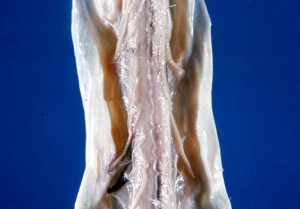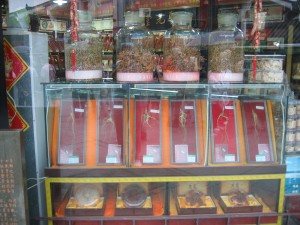Traditional Chinese herbal medicines have been used to treat a variety of ailments for centuries. Now a new study finds an ancient medicinal practice, called Ji-Sui-Kang (JSK), can improve locomotor function in rats with spinal cord injuries.
The researchers reported that after being treated with JSK, the injured rats showed decreased tissue damage and the structure of their neural cells was better preserved when compared to rats in a control group.
The data also showed that JSK treatment might reduce inflammation and cell death, as well as boost local oxygen supply in the affected area. After a while, the JSK appeared to restore function and promote tissue regeneration.
Those involved with the study say their work provides an important foundation for further study into the use of JSK therapy.
“A number of anecdotal reports from Chinese medicine practitioners indicate that treatment with a novel herbal formulation, JSK, for periods of one week or three months improved functional recovery,” said the study’s co-lead investigator Shucui Jiang, head of the Hamilton NeuroRestorative Group at McMaster University in Hamilton, Ontario, Canada.

Anterior view of a human spinal cord (John A Beal, Louisiana State University Health Sciences Center)
For this study, the researchers divided their rat test subjects into two groups. One group was treated with the herbal medicine treatment while the control group was given a saline solution. Treatment began immediately after spinal cord injury and the test period was 21 days.
The investigators reported that, within seven days of the start of their experiment, the hind limb locomotor function was significantly better in the group of rats treated with JSK as compared to the group that only got the saline.
Throughout the 21-day test period, the rats treated with JSK continued to display better motor function, appeared to support their weight better, and showed more coordinated movement than those in the control group. After examining microscopic samples of the spinal cord from rats in each group, the researchers found that the structure of the injured spinal cord of those treated with JSK was better preserved. Additionally, the size of the injured area was significantly reduced about a week after the injury.

Traditional Chinese medicine shop in Tsim Sha Tsui, Kowloon, Hong Kong (© Mailer Diablo via Wikimedia Commons)
“Our data suggest that JSK may enhance tissue recovery by reducing cell growth inhibitors and by promoting the proliferation of cells within the injured spinal cord,” said the other co-lead investigator Michel Rathbone, a professor at the Department of Medicine at McMaster University.
The researchers said their study suggests JSK treatment could help protect against further spinal cord injury caused by damage to local blood vessels.
Citing proprietary reasons, the authors of the study did not reveal the entire herbal composition of their JSK treatment. But, they did list some of the ingredients which included ginseng, rhizoma, glycyrrhizae radix, paeoniae alba radix and cinnamomi cortex.






















My hope after this report, that the chinese merchants do not double or triple the retail prices; or roll out some imitation and compromised items that look like that. As happened with Cordyceps (almost 500% price increase)
THis sounds amazing. well worth the research costs if it even helps a little!
Hi, my son cory dove in a swimming pool in July damaging his C5-C6 vertebrae. He’s got feeling back in his legs and a lot of neuro back. He’s paralysed. He’s classed as a tetraplegic. I am enquiring to see of any of your herbal medicine will help him? He’s 15years of age. Thank you Michelle Peyton